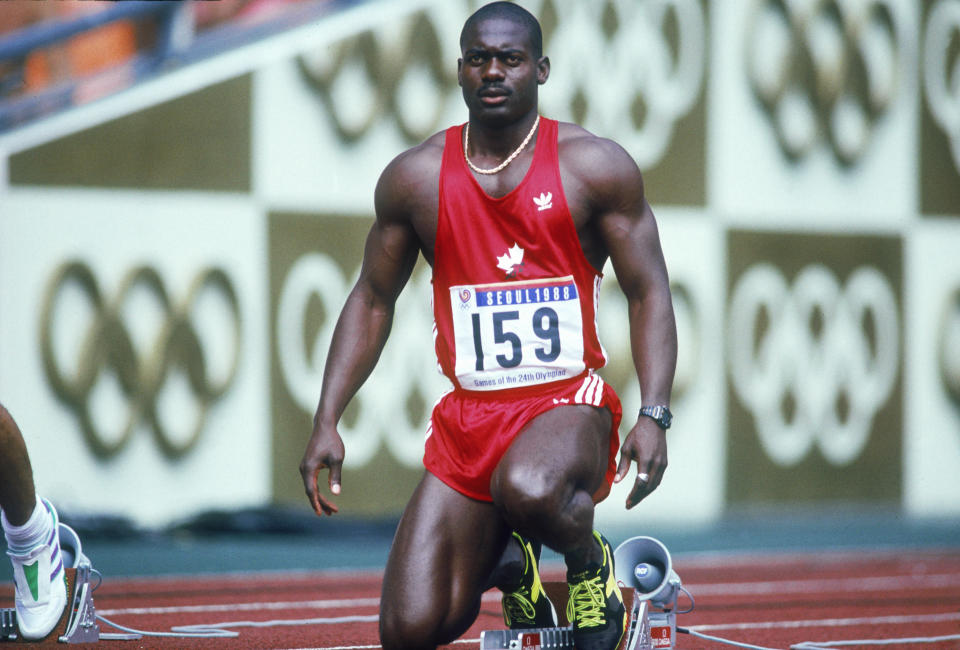Ben Johnson finally sees inconsistent Seoul test results: 'I would have kept my medal'

Ben Johnson had never seen the evidence that was used to strip him of his gold medal at the Seoul Olympics back in 1988. In fact, not a single official from the Canadian Olympic team had seen the results of the drug test that ultimately ruled on Johnson’s fate.
With the help of the Toronto Star, Johnson finally received the paperwork thirty years after the famous Olympian became the infamous Canadian sprinter.
And he’s not happy with what he saw.
“If I had seen this in Seoul, I would have kept my medal,” Johnson shared with the Star as he perused the pages from the lab report. “If you can’t see the evidence, how can others condemn somebody?”
The Star recently obtained a copy the report, which reportedly contains clinical data, sample codes and scientific results that detected stanozolol, a banned anabolic steroid, in Johnson’s urine. The presence of stanozolol is reportedly irrefutable, but the test results are riddled with inconsistencies that raise questions about the lab and its handling of Johnson’s sample.
Unexplained deletions, handwritten revisions, “blank” urine tests, question marks and changed lab codes are peppered throughout a report that seems to unveil the lab’s apparent confusion about what illegal substance was actually found in Johnson’s system 30 years ago.
At the time, Johnson had maintained his denial, refusing to admit to taking any banned substances ahead of the Olympic Games. But the 56-year-old eventually did admit to longtime steroid use long before discovering the inconsistencies from his Seoul drug test.
His admission notwithstanding, Johnson appears to be adamant that he would have retained his gold medal if he and his team had seen the lab’s report in 1988. In light of the report’s inconsistencies, it’s certainly fair to wonder what could have been if the report was made available 30 years ago. But Montreal lawyer Dick Pound, who served as an IOC vice president in 1988 and defended Johnson following the controversy, is content with the way things developed.
“I would have been really embarrassed that through some lawyering, you got somebody off who was guilty,” Pound told the Star, adding that he has yet to see Johnson’s lab report.
“All the information eventually gets out.”
More Olympic coverage on Yahoo Sports:

 Yahoo Sports
Yahoo Sports 


